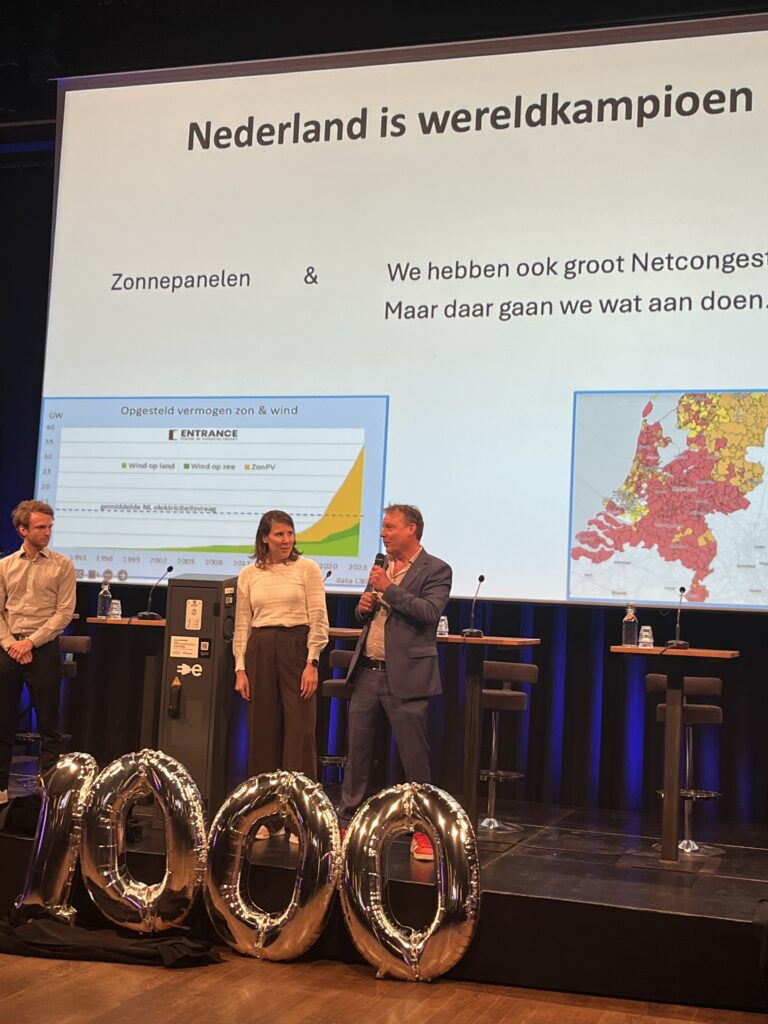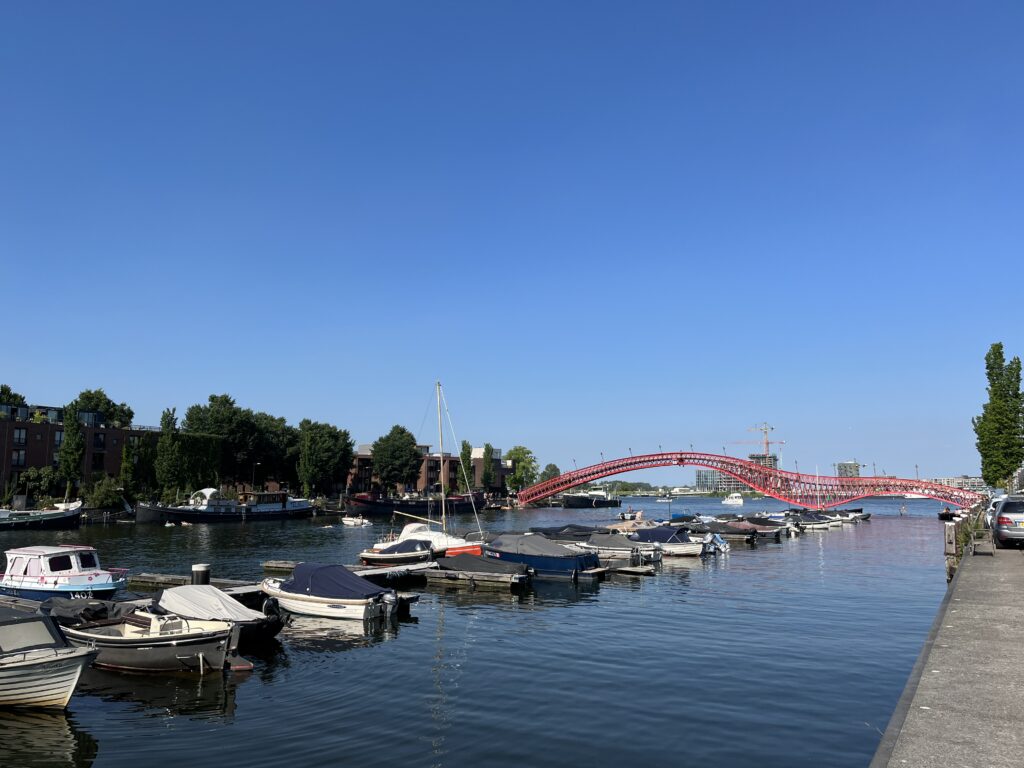On the 12 of June 2024, a significant milestone was achieved in our Dutch pilot site. Our partners Resourcefully and OpenRemote signed an agreement was signed with the local DSO Liander. The signing was combined with an event hosted by Resourcefully about sustainable, inclusive and essential grid congestion measures and themed on “Energy sharing in the neighbourhood”, which attracted over 100 participants.
The event started with the technologically good news: the festive unveiling of the 1000th smart charging station in Amsterdam, the goal is to have all 4000 stations (8000 sockets) ready for smart charging. There was also a mention of The Netherlands as world champion in solar panels, with the most solar panels per resident.

The focus was on promoting energy sharing within neighbourhoods. Energy sharing offers many benefits such as more efficient use of infrastructure, lower CO2 emissions, lower costs and more energy independence. Discussions focussed on important topics, the open panel discussions discussed themes such as: Optimization of energy infrastructure and energy sharing Organizational, financial and administrative options Involvement and experiences of local residents.
In the current energy transition, we will have to make our energy consumption more sustainable and efficient. Traditional solutions increasingly fall short of peaks and troughs in energy. This leads to overload for the electricity grid, higher costs and a shorter lifespan of infrastructure such as transformer houses. The question is shall we have more local control over our energy consumption and reduce CO2 emissions?

Another major focus was on the actual inhabitants of the Sporenburg Island. Their solar installations generate about 55-60% of the required electricity. But due to the actual policies and various other factors only about a third of this is actually used. Their idea is to share electricity peer to peer, so that the people can use the surplus of their neighbours. Flexible charging is the biggest asset here to support this process. How can this energy community share their electricity? The group of inhabitants is now working on an ‘energy-cooperation’. Through this we can realise the sharing of energy inside the energy community. Residents exchange electricity with each other through a local energy cooperative that is now being established. Participants from these projects show how self-consumption of electricity works at different levels:
1) That of the own connection,
2) Of the building
3) Of the transformer house.
Everything about the Amsterdam pilot can be found here. If you are curious about the latest news of the RESCHOOL project, please check out website and follow us on LinkedIn and Twitter.
